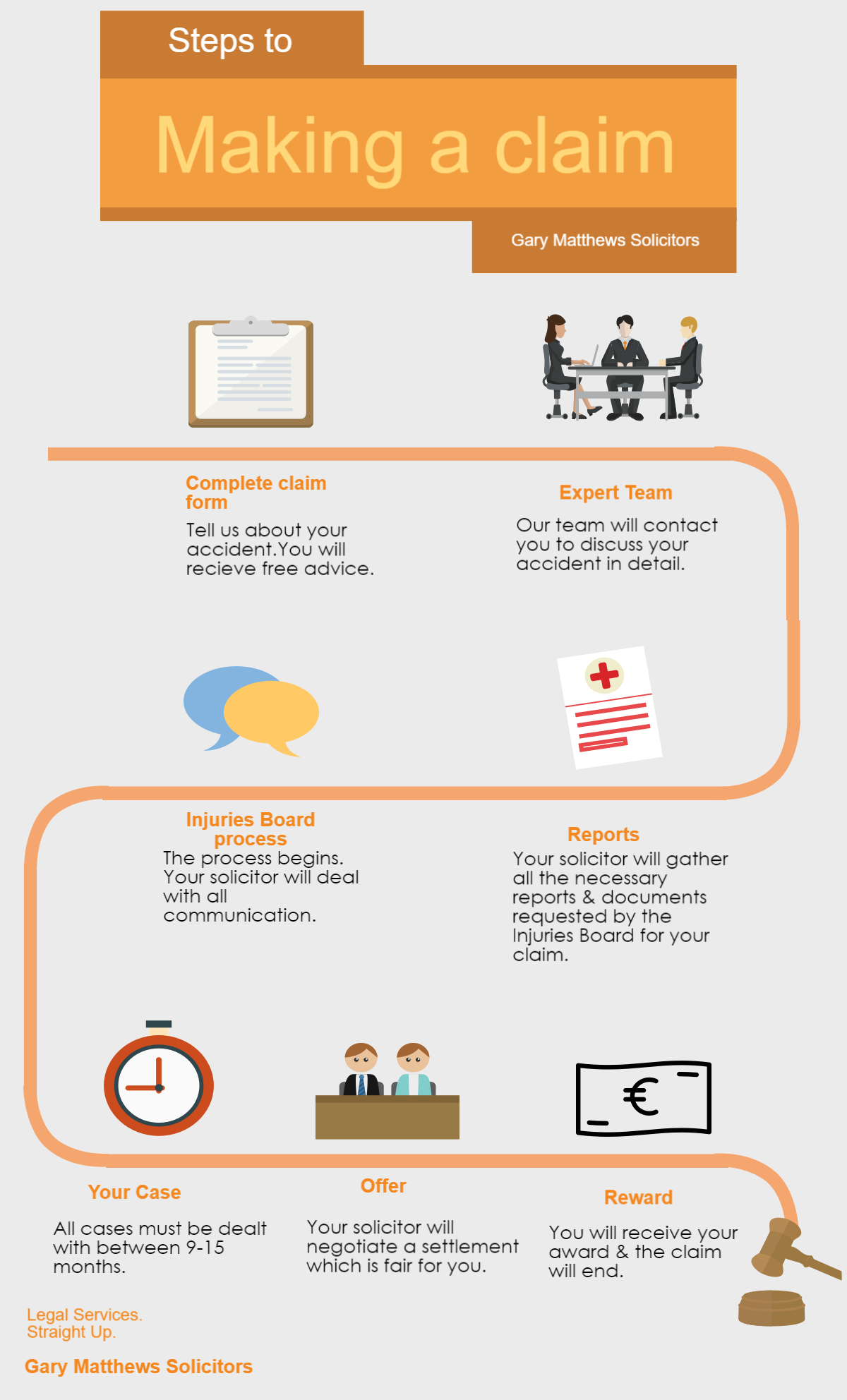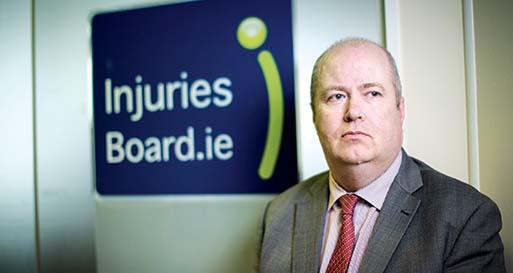Picking your personal injury solicitor – what you need to know!
You’ve had an accident and you’ll probably agree it’s one of the most unpleasant things that can happen. ‘And it could so easily have been prevented’…. you’re thinking. People are telling you that you that you may be entitled to a claim. If it’s something that’s never happened to you before, you probably have a hundred questions. You need an experienced personal injury solicitor to make sure you have the best possible chance of a successful claim. Keep these six points in mind when you’re making your choice.
5 considerations when choosing your personal injury lawyer:
- Experience – different solicitors may have different areas of expertise. When you have a personal injury case in Ireland, our advice is simple. Choose an Irish personal injury law expert. You don’t want your solicitor to be part of a general practice. You want someone that’s knows the local scene inside out, that have worked with injuriesboard.ie before. You want someone that knows the ropes.
- Accreditations – if you were having your appendix removed, would you let your GP do the operation – he is a doctor after all. Of course not – you would only let a specialist surgeon carry out the operation. What should your personal injury claim be any different. Use someone who specialises in Personal Injury cases and does nothing else and has been accredited by Personal Injury organisations like APIL(www.apil), Headway etc..,.
- Costs – find out how they structure their costs. If it’s on a no-win, no-fee basis, this may be your best option. But be careful to get a solid outline of all fees and do your research.
- How they do business – while it’s accepted that most cases never go to court, you always have to be ready for the possibility of a court date. Your solicitor must show you that they have gone down this route before and been successful.
- Their track record – when you sit down with them, ask your personal injury solicitor about how successful they have been. Have they taken on a case like yours before? In simple terms, back a winner and do what they tell you – you’re paying for their expertise after all.
- What feeling you get – this is what they call the ‘gut’ test. When you walk out of that door after the meeting, how you feel, what does your gut tell you?. Did they listen to you? A good solicitor will listen more than they talk. They’ll treat you with respect and after the meeting you’ll feel assured and confident. This is often the number one way to choose a personal injury solicitor. Because if you’re not happy they can do the business for you, it will feel like a long and difficult process.
It’s a big decision. At Gary Matthews Solicitors, we’ve been helping people with claims for personal injury for over 25 years.
If you think you might have a claim for compensation, get in touch. We’ll go through all your options and work with you towards a successful outcome.
Make an Enquiry today.
[ninja_forms id=1]



 ou are in a relatively minor car crash and only see a doctor or physical therapist for a month or so, by the time your Solicitor obtains all the medical records and bills, submits them to the insurance company, and there is an offer on the table, it is months after the crash. Do you remember how many times you mowed your lawn last year or how many times you washed the car last year? Exactly! Since most of us are so busy we can hardly remember what is for dinner or what we have to pick up at the shop on the way home tonight, we can hardly be expected to recall specific limits on our activity from months, or years ago. If court proceedings have to be issued, the earliest it will go to trial is a year or year and a half after the date of the incident. In complex cases, this could be as much as 4 years or more after the actual incident occurred. How can you remember your medical treatment and limits on your activity from that long ago? A diary is a great way to do this!
ou are in a relatively minor car crash and only see a doctor or physical therapist for a month or so, by the time your Solicitor obtains all the medical records and bills, submits them to the insurance company, and there is an offer on the table, it is months after the crash. Do you remember how many times you mowed your lawn last year or how many times you washed the car last year? Exactly! Since most of us are so busy we can hardly remember what is for dinner or what we have to pick up at the shop on the way home tonight, we can hardly be expected to recall specific limits on our activity from months, or years ago. If court proceedings have to be issued, the earliest it will go to trial is a year or year and a half after the date of the incident. In complex cases, this could be as much as 4 years or more after the actual incident occurred. How can you remember your medical treatment and limits on your activity from that long ago? A diary is a great way to do this!


